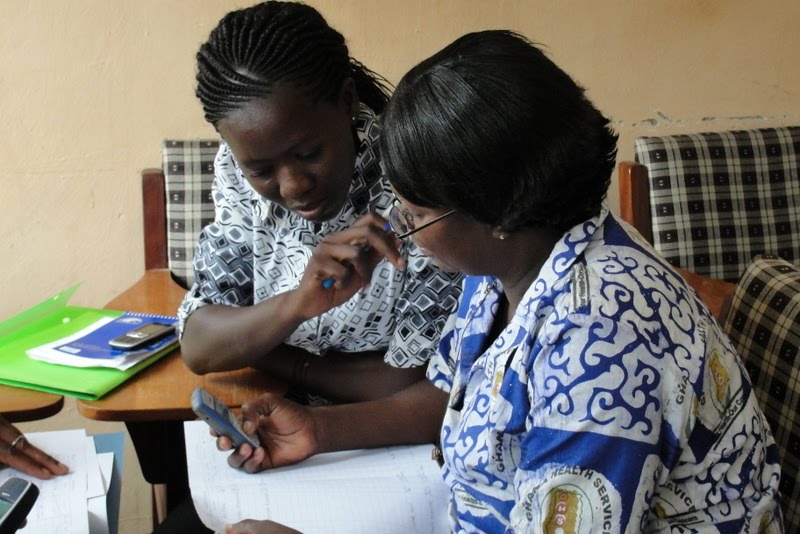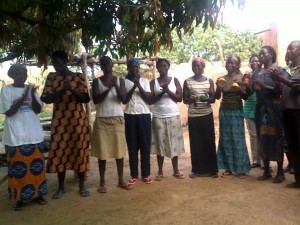Jessica Osborn is the Business Development Manager at MOTECH Ghana
A pregnant woman registers for the Mobile Midwife service
MOTECH Ghana is an initiative of Grameen Foundation, Ghana Health Service and Columbia University which aims to use mobile technology to improve the quality of antenatal and postnatal care for Ghanaian women and their families. MOTECH has developed an information service called Mobile Midwife which delivers time-specific voice or text messages to pregnant mothers and their partners and families both before and after birth. We have also built a simple java-based app that enables nurses in rural Ghanaian health facilities to automate much of their record keeping and reporting, which formerly took 4-6 days per month. This nurses’ application also makes it easier for nurses to identify patients who have missed certain care.
We recently sat down with some of the nurses who use our app and here is what they told us:
A nurse describing how the app has helped with paperwork: “It’s been good because it helps us with our reports. Sometimes our tallying gives us incorrect data. With the phones we know the data that we get at the end of the month is correct. We used to have to pick lots of forms in different places and take them elsewhere, now it’s much easier.”
Our Mobile Midwife service requires pregnant parents to provide a due date and their location when they register for the service. The service then sends messages to parents when appointments are due or overdue to remind them to visit the health clinic for check-ups. One nurse told us, “with MOTECH we also get our clients easily because we get messages listing our defaulters. Some of them also come to access services because MOTECH sends them messages telling them to come. We get people coming here telling us that MOTECH has told them to come to the facility.”
Another nurse really appreciated the reinforcement that Mobile Midwife messages provided for his own outreach efforts – “When we see our clients for a child welfare clinic we gather them in a big group to educate them but we don’t have time to do that 1:1. Often these meetings are big and noisy so not everyone picks up what you’ve said. That’s why MOTECH is good because it provides 1:1 information to them along with personalized reminder messages.”
We really appreciate the cooperation we have received from the nurses of the Ghana Health Service in developing, testing and finally deploying MOTECH. The nurses provide critical health care services to remote communities, which is a challenging task. We’re happy to have the opportunity to make their work on behalf of Ghanaians a little easier.



